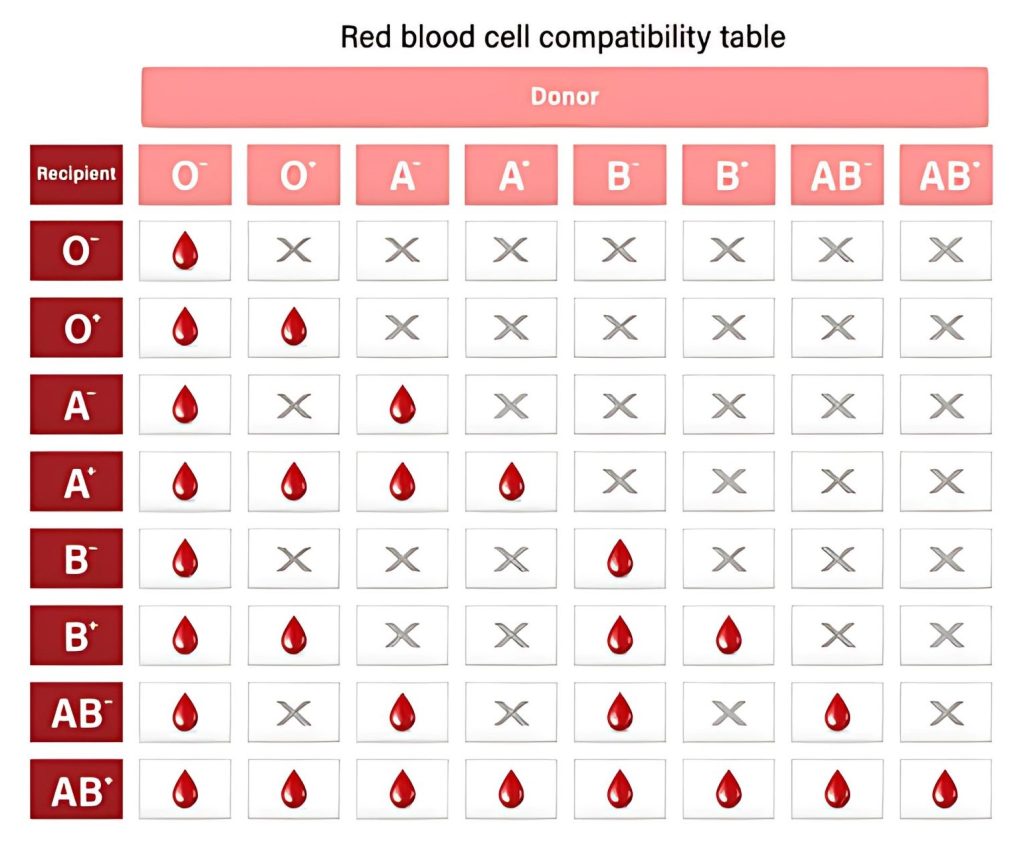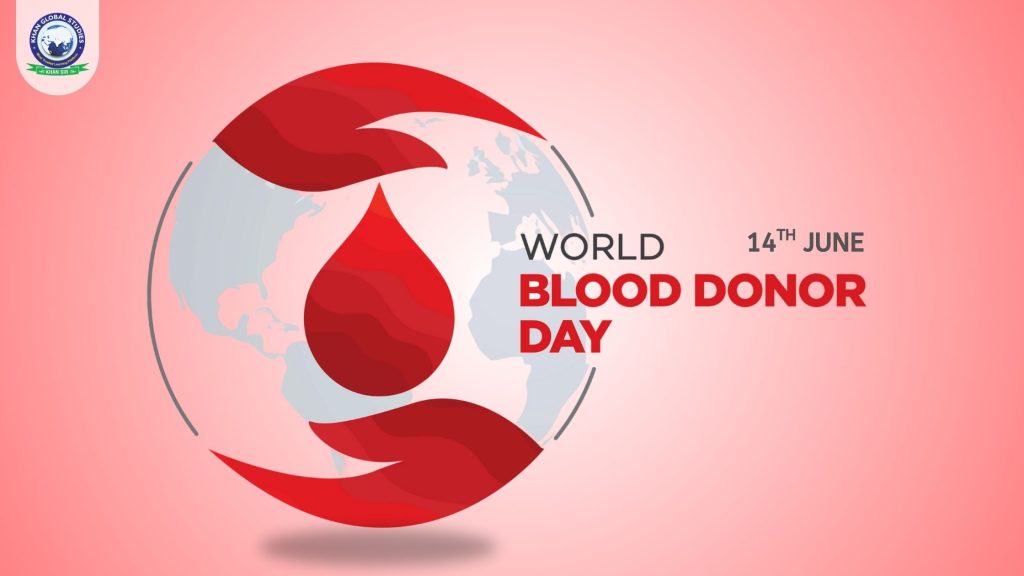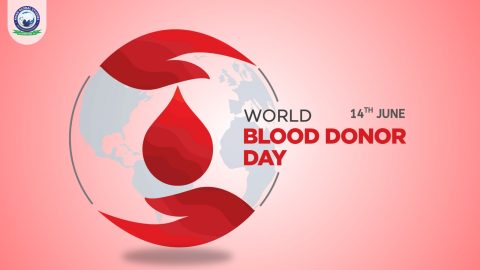Every year, World Blood Donor Day is celebrated with immense gratitude and awareness to recognize the life-saving act of blood donation. As we move towards World Blood Donor Day 2025, we not only honor voluntary blood donors across the world but also raise important awareness about the need for safe blood and blood products. The day draws global attention to the importance of regular, unpaid blood donation that helps save millions of lives every year.
What is World Blood Donor Day?
World Blood Donor Day (WBDD) is a global health observance designated by the World Health Organization (WHO) to celebrate and thank individuals who donate blood voluntarily and without compensation. The day also aims to highlight the need for committed, year-round blood donation to maintain an adequate supply and achieve universal access to safe blood transfusions.
Celebrated every year on June 14, this day is the birthday of Nobel Prize-winning Austrian physician Karl Landsteiner, who discovered the ABO blood group system, a fundamental breakthrough in the field of blood transfusion.
World Blood Donor Day 2025 Theme
WHO has not officially announced the theme for World Blood Donor Day 2025. However, each year’s theme is carefully chosen to address current challenges and encourage active public participation and government involvement in blood donation campaigns. The theme usually emphasizes the importance of voluntary blood donation, safety in transfusion, and accessible healthcare services.
We will update this section as soon as the WHO officially announces the theme for 2025.
History of World Blood Donor Day
The idea of Global Blood Donor Day was born from the collaborative efforts of the World Health Organization (WHO), the International Federation of Red Cross and Red Crescent Societies (IFRC), the International Society of Blood Transfusion (ISBT) and the International Federation of Blood Donor Organizations (IFBDO).
The first official celebration took place in 2004, and since then, June 14 has become a day of global importance, uniting countries, NGOs, hospitals and blood donors to reinforce the need for safe and adequate blood supply.
Key Milestones:
- 2004: The first World Blood Donor Day was celebrated.
- 2012: WBDD was officially designated as a global public health campaign by the WHO.
- Every year: Countries around the world organize events, campaigns, seminars and public awareness campaigns.
Why is World Blood Donor Day important?
Blood is a vital component in emergency care, surgery, cancer treatment, childbirth complications, and the management of various diseases such as hemophilia and sickle cell anemia. Yet, in many parts of the world, access to safe blood remains a major challenge.
Here are the main reasons why World Blood Donor Day is so important:
- Raises awareness: Many people remain unaware of the constant need for blood. The event promotes education about the process, safety, and benefits of blood donation.
- Encourages voluntary donation: WBDD motivates individuals to donate blood voluntarily and regularly. Voluntary donors are the safest source of blood, as they are more likely to be honest about their health status.
- Improves health infrastructure: The day provides a platform for health organizations to urge governments and stakeholders to invest in national blood services and ensure quality and safety standards.
- Saves lives: According to WHO, one unit of donated blood can save up to three lives. Blood transfusions are essential in emergencies, childbirth, severe trauma, anemia, and more.
The Impact of Blood Donation
Blood donation not only saves lives, but it also creates a ripple effect of health and hope in the community. From trauma victims and cancer patients to mothers suffering from complications during childbirth, donated blood can be the deciding factor between life and death.
Blood donation also has health benefits for those who donate. Regular donations can help reduce iron overload, improve heart health, and promote a sense of emotional well-being from knowing you made a difference.

How to Participate in World Blood Donor Day 2025?
Individuals, organizations, and governments can take several steps to support World Blood Donor Day in 2025:
- Donate blood: If eligible, consider donating blood. Contact your local blood bank or hospital and participate in donation camps.
- Host or support a blood donation drive: Educational institutions, corporate entities, and community groups can organize safe and well-organized blood donation drives in collaboration with blood banks.
- Spread awareness: Use social media platforms, local media, or word of mouth to inform others about the importance of blood donation and how they can help.
- Honor blood donors: Recognize and appreciate regular blood donors. Celebrating them publicly can inspire others to donate.
- Advocate for policy support: Push for legislation and funding that supports infrastructure for safe blood collection, testing, storage, and transfusion services.
Interesting Facts about Blood Donation
- Every two seconds, someone in the world needs blood.
- In many countries, only 1% of eligible people donate blood.
- A car accident victim may need up to 100 units of blood.
- Blood cannot be manufactured—it can only come from human donors.
- O-negative blood is considered the universal donor and is in consistently high demand.
Global Observance and Celebration
Each year, a different host country is chosen by WHO to organize the official global event. The host country organizes a national campaign that aligns with the annual theme and promotes mass participation.
These events typically include:
- Public awareness campaigns
- Media engagement
- Educational seminars
- Blood donation camps
- Facilities for donors
Call to Action: the Need for Sustained Donation
The aim of World Blood Donor Day is not just to celebrate a day of donation, but to promote a culture of regular voluntary blood donation. The supply chain for safe blood is fragile and must be maintained to meet daily and emergency demands.
Governments, NGOs and health agencies should work together to:
- Strengthen national blood systems
- Ensure equitable access to safe blood
- Recruit and retain voluntary donors
- Guarantee testing and quality control
Conclusion
World Blood Donor Day 2025 is an important opportunity to thank lifesavers, raise awareness and mobilize action worldwide. Blood is the gift of life – and voluntary donors are the unsung heroes who keep the pulse of humanity alive. As we get closer to this day on June 14, 2025, let us all pledge to support, donate and advocate for safe and accessible blood.
If you are eligible, roll up your sleeves, donate and inspire others to do the same. Your one donation could be a second chance at life for someone.





